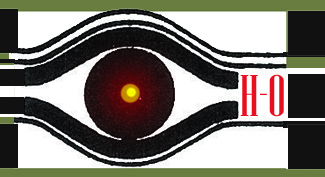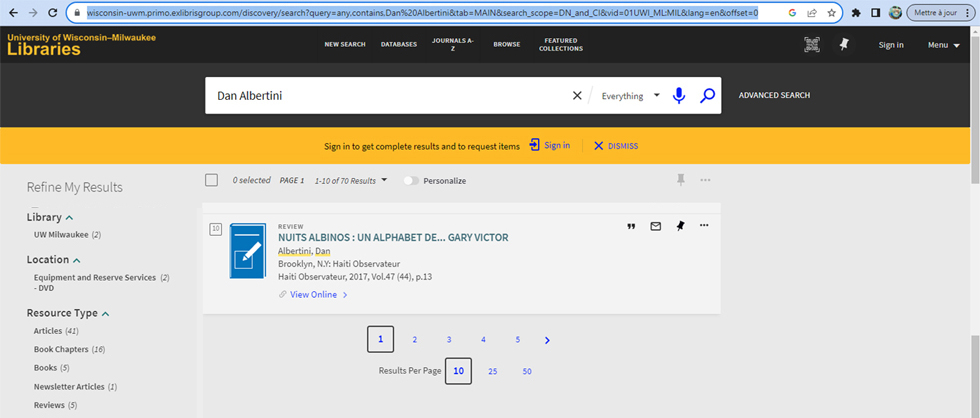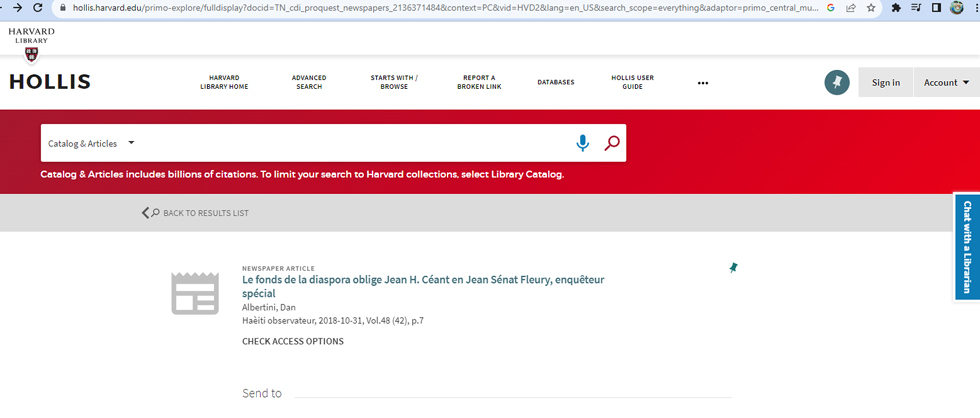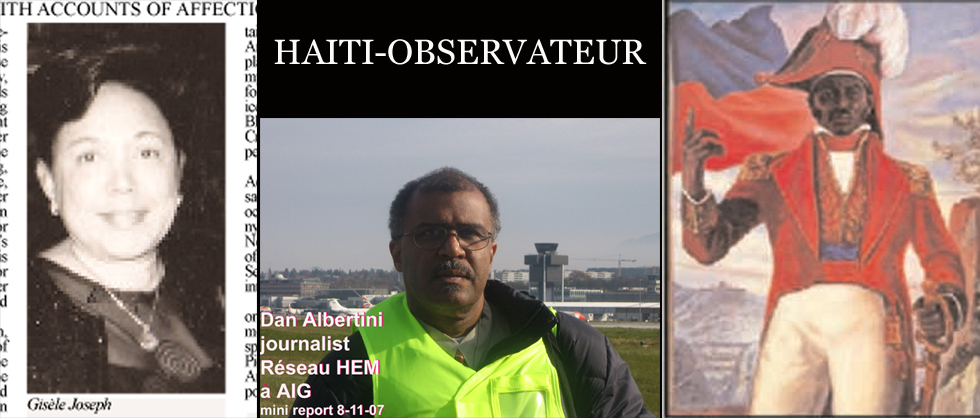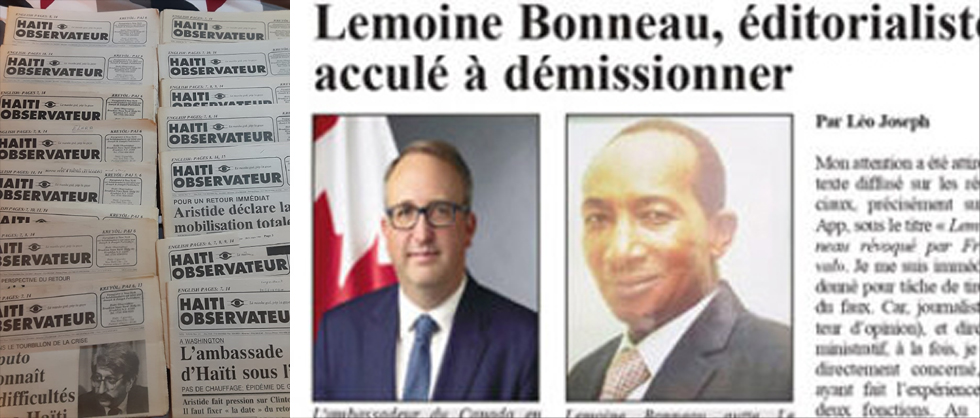Happening : Namoni and Serena After the Match by RAJ
It happened on Saturday, September 8, at the U.S. Open Tennis Tournament, at the Arthur Ashe Stadium in Queens, N.Y.: 20-year-old Naomi Osaka defeated her idol, the 36-year-old tennis queen Serena Williams in two sets – 6-2, 6-4 –, thwarting Serena’s dream of breaking two records.
Forget the controversy surrounding the upset which caused Serena to lose her cool, even violently breaking her racket and getting in a verbal match with the chair umpire. She’s been fined $17,000.00, a pittance for her. Serena, a six-time U.S. Open champion could not swallow her pride for being humiliated by the younger upcoming star.After all, she waslooking forward to tying the standing record of grand slam tournaments by winning her 24th major title, equaling thereby that of the retired Margaret Court of
Australia, now a Christian minister. She would also be the pride of all mothers for holding on the title even after having given birth. Meanwhile, Naomi’s victory has boosted the pride of most Haitians because of her Haitian ancestry.
With a family name like Osaka, and playing for Japan, there’s no Haiti here, some said. But, in an interview with Black Kryptish Show, Naomi clarified things. The interviewer asked, “In your relationship with Japanese culture and your relationship with U.S. culture, what country affects you, that has made you who you are ?”
“My dad is Haitian,”she began. “So, I grew up in a Haitian household inNewYork. I lived with my grandma. And my mom is Japanese and I grew up with the Japanese culture too. If you say American, I guess, ’cause I live in America, I also have that too.” What a boost for multiculturalism in an age where racism and chauvinism are making a big comeback with support even fromtheU.S. president ! Remember “sh…..le countries ?”
Anyway, there’s no doubt in Naomi Osaka’s mind about what cultures influenced her to be the person she is. In an interview with the New York Times, she talks about her cultures: “Japanese culture ? I love everything about it. …America, I live here. I train in Florida. …And Haiti, if you’ve ever met a Haitian person, they are really positive, and literally if you’re friends with them, then they will do anything for you. That’s something that is a really good trait, and I’m really happy that my grandparents and my dad’s side of the family is like that.”
Her father, Léonard François, hails from Jacmel, in Haiti’s southeast region. He studied at New York University before moving to Japan to work and to find the love of his life, Tamaki Osaka. Naomi’s older sister, Mari, 22 years old, is also a tennis player, ranked 289 by Wikileaks as of April 2018. For practical reasons, the parents decided to adopt the mother’s name for their girls who were born in Japan. That facilitated schooling and other things. In fact, this has paid off handsomely because Japan has sponsored Naomi’s rise to fame.
It’s understandable that Naomi mentioned her father first when asked about what culture (Japanese or U.S.?) had influenced her most. He began training the girls when Naomi was three years old. In fact, Mr. François was inspired by Richard Williams, the American tennis coach whose two daughters, Serena and Venus, became an awesome pair on the worldwide tennis circuit. The Haitian father fancied his two girls becoming like Serena and Venus. They have competed against each other, just as Venus and Serena have. And Naomi, especially, grew up idolizing Serena and hoping to be like her one day.
Naomi’s wish began to hap- pen last March 21st. when she defeated Serena in straight sets –6-3, 6-2— at the Miami Open. But that could have been a fluke, considering that it was Serena’s second tournament since she gave birth. Certainly, she had learned the weakness and, no doubt the strength also, of her young opponent. Next time she will handle her better. But last Saturday, with Serena going
down 6-2, 6-4, it was a repeat performance for both. And the young Japanese-Haitian has more than fulfilled her dream. Naomi dethroned her idol of so many years. She deserves all the praise. And she got $3.8 million to boot. Already the press in Japan mentions sponsorships into $100 million. Serena fetched
$18 million a year in such sponsorships.
For two days, the Japanese press, newspapers and television, praised their new “Tennis Queen.” Her grandfather, who broke communication with his daughter for 10 years when he found out that she was romantically involved with a black man, is reported in the Japanese press-saying that he will meet his
grand daughter soon when she will be playing in Japan. Interestingly, the strain in family relations, was instrumental in François and Tamaki moving to the United States with their young girls in 2000.
During the whole weekend, Haitians were engrossed in Naomi’s victory which dominated the conversation on the social networks. A few said she’s not Haitian. She’s Japanese by her name and nationality. “She didn’t win for Haiti,” was the comment heard, “she won for Japan.” But most people said, “Were it not for her Haitian father, Japan wouldn’t win anything.” After all, this is the first victory for Japan in grand slam competitions.
Moreover, the amended Haitian constitution provides Haitian nationality for any child born of a Haitian mother or father who was born in Haiti. Meanwhile, Haitian President Jovenel Moïse quickly claimed Naomi for Haiti. He issued the following statement: “Bravo, and thank you, our Naomi for making us proud today. Haiti shares also in the immense joy to see her realize such an exploit in the grand slam
so coveted. Continue to make us dream, Naomi, and to show to the youth of your generation the path to take.Continued success.”
Had the Haitian government been more supportive of our talented young people by investing in sports activities, the likes of Naomi could compete under the Haitian flag in international competitions. For example, Schnidine Louis, a promising tennis player in Haiti in her early 20s, was quick to issue a statement complaining about how she finds no support for her training. What about the U.S-based, 23-year-old Haitian-born Victoria Duval, who could also go far, were she to find the supportfor good training ? Were they to be victorious in any international competition, the government would be first to claim them for Haiti.
The situation is dire for Haiti’s talented sports men and women. Last Sunday, Haiti Première Classe, the weekly television show in metropolitan New York, presented the plight of basketball players in Gonaïves who are considered among the best in the country. Antoine Saint-Jean, the trainer, was pleading with the Gonaivians in the Diaspora to helpwith an electrical unit to provide power to their gym on a property provided by Pastor Alexandre for the Christian College.
Recently, when the Haitian women’s soccer team under 20 lost in the World Cup in France while playing brilliantly, it was noted that the Grenadières, as the team is called, could have done much better if they had proper training. They were praised to the high heavens by most, including the government. Reginald Boulos, the businessman whose stores were looted during the July 6-7 fuel riots, announced that his foodmarketswould provide food for a whole year to the members of the team, more than 20. He
also called on the business community to do what they can to encourage the young women. Gary Bodeau, president of Haiti’s Lower House, issued a statement that he would provide a cellular phone to each girl. Really ? And that’s it as far as government support is concerned.
Just consider what could have been done for our youth with a few millions from the $3.8 billion stolen and wasted from the PetroCaribe Fund ! What have they done with the money from PetroCaribe ? Accountability and restitution are in order. Down with impunity! May the demon- strations continue !
Naomi Osaka in Haiti
Last year, for her October 16, 19thbirthday, Naomi went to Haiti for her first time to the land of her father. Pictures of her visiting the famous Bassin Bleu waterfall in the Jacmel area are to be found on various internet sites. Commenting about the country she had just discovered, she was quoted in an interview in French saying, “I have no problem to become an ambassador for my father’s country. Haiti deserves to
be known by the entire world for her magnificent beauty and especially for her delicious cuisine. …”
She continues: “I know my mother’s country. I began to play in Japan since I was three years old. I always hear negative things being said about my father’s country. I wanted to see whether what was said was true. I asked my dad to accompany me, and I found another reality. The people are kind, respectful and courteous. I visited the city of Jacmel with itssuperb beaches. I am very happy to come to Haiti for the first time.” And she concludes that she was ready to become “Ambassador of this beautiful sun-bathed country, to present to the rest of the world this little despised gem.”
May the young people of Haiti, in and out of the country, be inspired by Naomi Osaka to do something great and very dif- ferent for the land of their fathers and forefathers which has been dragged into the mud by the socalled leaders who have enriched themselves, their families and friends at the expense of a prostrate nation. RAJ September 12, 2018
this article is belong to the Haiti-Observateur newspaper weekly, edition of september 12 2018 and will be found at : P. 1, 16 at http://haiti-observateur.ca/HO12septembre2018.pdf
